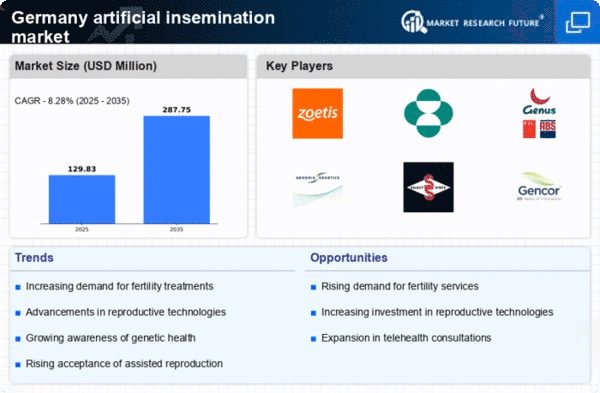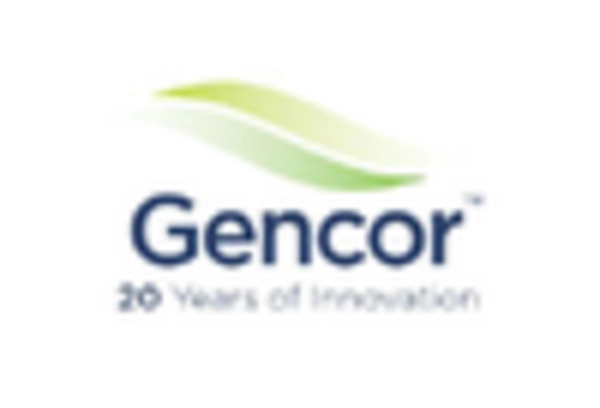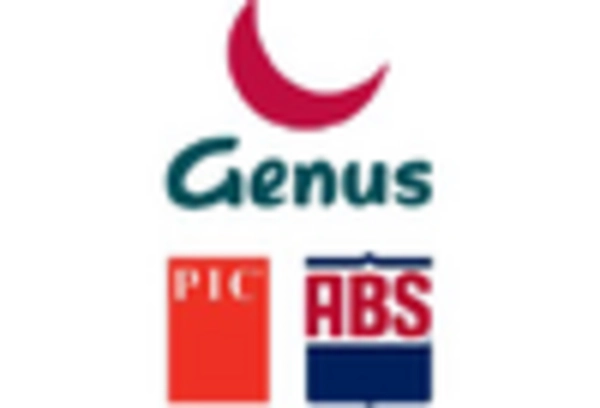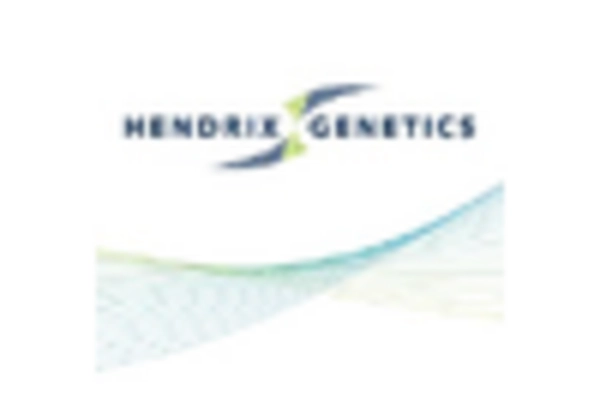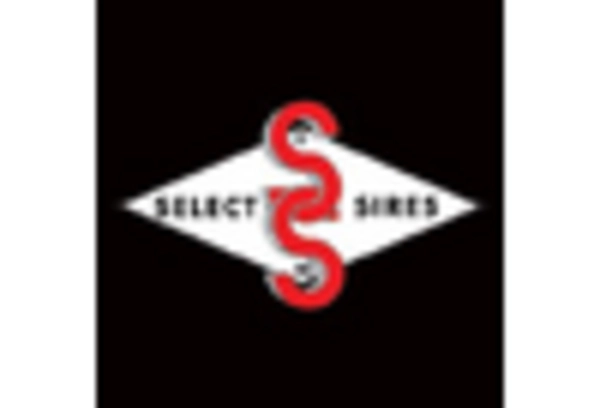Rising Demand for Fertility Treatments
The artificial insemination market in Germany is experiencing a notable increase in demand for fertility treatments. This trend is largely driven by changing societal norms and a growing number of couples facing infertility issues. According to recent statistics, approximately 15% of couples in Germany encounter difficulties in conceiving, which has led to a heightened interest in assisted reproductive technologies. The artificial insemination market is adapting to this demand by offering a variety of services, including intrauterine insemination (IUI) and in vitro fertilization (IVF). As more individuals seek these services, the market is projected to grow significantly, with estimates suggesting a compound annual growth rate (CAGR) of around 5% over the next few years. This rising demand is likely to encourage further investment in research and development within the industry.
Cultural Shifts Towards Family Planning
Cultural attitudes towards family planning in Germany are evolving, which is influencing the artificial insemination market. As more individuals prioritize career development and personal goals before starting a family, there is a growing acceptance of assisted reproductive technologies. This shift in mindset is leading to an increase in the number of women opting for artificial insemination later in life, often in their 30s and 40s. The artificial insemination market is responding to this trend by offering tailored services that cater to older parents, including egg freezing and donor sperm options. This cultural transformation is expected to sustain the market's growth, as more people recognize the benefits of utilizing these technologies to achieve their family planning goals.
Advancements in Reproductive Technologies
Technological innovations are playing a crucial role in shaping the artificial insemination market in Germany. The introduction of advanced reproductive technologies, such as preimplantation genetic testing (PGT) and cryopreservation techniques, has enhanced the success rates of artificial insemination procedures. These advancements not only improve the chances of conception but also allow for better selection of viable embryos, thereby increasing the overall efficiency of fertility treatments. The artificial insemination market is witnessing a shift towards more personalized treatment plans, as clinics adopt these technologies to cater to individual patient needs. Furthermore, the integration of artificial intelligence in monitoring and optimizing treatment protocols is expected to revolutionize the industry, potentially leading to improved outcomes and patient satisfaction.
Government Support and Funding Initiatives
The artificial insemination market in Germany benefits from various government support and funding initiatives aimed at promoting reproductive health. The German government has implemented policies that provide financial assistance for couples undergoing fertility treatments, which has made these services more accessible. For instance, health insurance coverage for artificial insemination procedures has been expanded, allowing more individuals to seek help without facing prohibitive costs. This support is crucial, as it not only alleviates the financial burden on couples but also encourages them to pursue treatment options. The artificial insemination market is likely to see an increase in patient numbers as a result of these initiatives, contributing to a more robust market environment.
Increased Collaboration Among Healthcare Providers
Collaboration among healthcare providers is becoming increasingly prevalent within the artificial insemination market in Germany. Fertility clinics, hospitals, and specialized reproductive health professionals are forming partnerships to enhance the quality of care provided to patients. This collaborative approach allows for the sharing of expertise and resources, ultimately leading to improved treatment outcomes. The artificial insemination market is witnessing the establishment of multidisciplinary teams that focus on comprehensive patient care, addressing not only the medical aspects but also the emotional and psychological needs of individuals undergoing fertility treatments. Such collaboration is likely to foster innovation and improve patient experiences, thereby contributing to the overall growth of the market.


